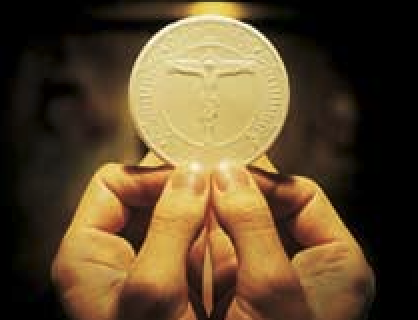EDITOR'S NOTE: First of two columns on current debates about Holy Matrimony and civil unions.
If the American public has truly changed its mind on marriage, then it's time for Catholic priests to start saying, "We don't," instead of continuing to endorse the government's right to legislate who gets to say, "I do."
At least, that's an option that Catholics, and by implication other religious traditionalists, must be willing to consider, according to scholar George Weigel of the Ethics and Public Policy Center, who is best known as the official biographer of the late Pope John Paul II.
In the wake of President Barack Obama's victory, supporters of same-sex unions will "press the administration to find some way to federalize the marriage issue," argued Weigel, in a syndicated essay that ignited fierce debates once posted at FirstThings.com and elsewhere online. "It seems important to accelerate a serious debate within American Catholicism on whether the Church ought not preemptively withdraw from the civil marriage business, its clergy declining to act as agents of government in witnessing marriages for purposes of state law."
If Catholic leaders take this step now, he noted, they would be "acting prophetically" and underlining the fact that there is a radical, and increasing, chasm between the church's sacramental definition of "marriage" and legal meaning now being assigned to that term by judges and legislators.
"If, however, the Church is forced to take this step after 'gay marriage' is the law of the land, Catholics will be pilloried as bad losers who've picked up their marbles and fled the game – and any witness-value to the Church's withdrawal from the civil marriage business will be lost," argued Weigel.
This action would, in effect, require Catholics and other religious believers who embrace traditional doctrines about marriage to jump the dual marriage hurdles that are already required, for example, in the Netherlands. Couples are united in the eyes of the state in civil ceremonies and then, in the eyes of God, in sacred rites.
It would be rather easy for priests to refuse to sign wedding certificates, thus declining to act as agents of any government that has redefined marriage, noted Maggie Gallagher, co-founder of the National Organization for Marriage. But what are ordinary believers supposed to do?
"If a priest cannot in good conscience cooperate with the state in creating a marriage can a good Catholic? ... An actual withdrawal of Catholics from the public and civil institution of marriage," she noted, responding to Weigel, requires more than a gesture. Instead, it is "a huge endeavor that would require the creation of alternative means of enforcing the civil aspects of the marriage commitment (or leaving women and children unprotected).
"Abandoning that legal framework could cost us a lot of money potentially, too: Our widows would not get the inheritance exemption, it would take additional money to secure legal parenthood, etc."
Besides, she asked, why is it a prophetic witness for shepherds to opt out of a government system, while members of their flocks are – if they want to be legally married – forced to cooperate with that system?
Gallagher concluded: "It's no great sacrifice for the priest not to sign a marriage contract, but it is a potentially great sacrifice for the Catholic family. If it's no sacrifice, what is the witness?"
Meanwhile, strategists who want to defend centuries of traditional teachings about marriage must face the reality that, as important as these legal squabbles may be, the most damaging blows to the institution of marriage are taking place at the grassroots, argued Matthew Warner, blogging for The National Catholic Register. Will refusing to sign off on civil marriages simply push lukewarm believers further from the church?
"People aren't really changing how they feel about marriage based on the civil definition. They are changing the civil definition because their hearts have already long changed about marriage," he noted. "We've already twisted marriage into a contracepted, childless, self-serving, partnership of convenience that lasts until one person gets bored. Now we want to get picky about which genders can participate, but can't really remember why that matters either.
"Whatever our political tactics at this point, the ship has long been wrecked. You can redefine a floating casket and call it a lifeboat, or you can redefine a wrecked ship as a civilly wrecked ship, and it's not going to fix the real problems."
NEXT WEEK: Is compromise possible on Holy Matrimony?




